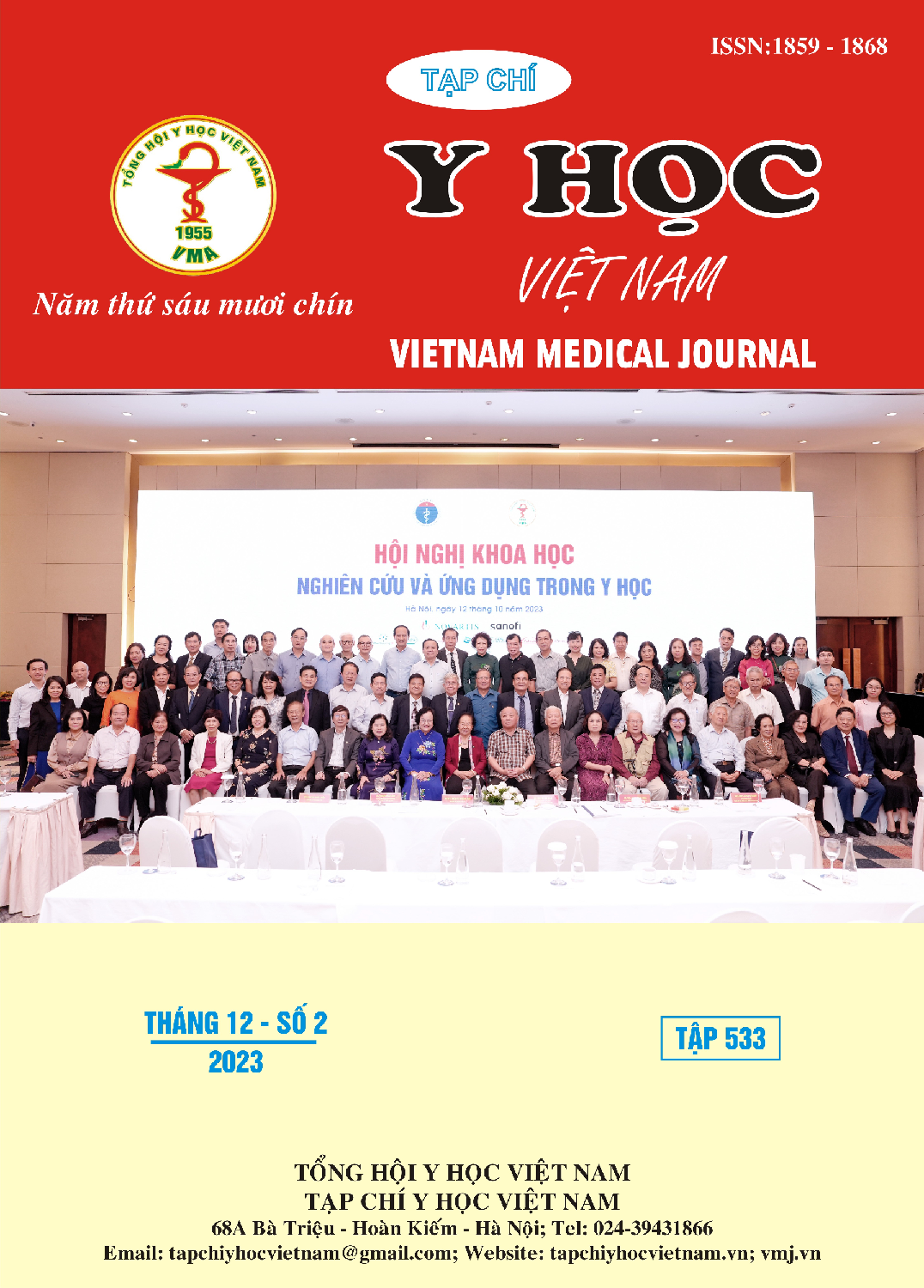PHÂN TÍCH NHÂN TỐ KHÁM PHÁ EFA CẤU TRÚC MÔ HÌNH CHIẾN LƯỢC ỨNG PHÓ Ở BỆNH NHÂN UNG THƯ VÚ TẠI BỆNH VIỆN UNG BƯỚU TP HỒ CHÍ MINH
Nội dung chính của bài viết
Tóm tắt
Mở đầu: Chẩn đoán ung thư là một trong những tác nhân gây căng thẳng ảnh hưởng đến tinh thần và chất lượng cuộc sống của bệnh nhân. Ứng phó liên quan đến quy trình về nhận thức và hành vi và mỗi cá nhân có các cách ứng phó thích ứng hoặc không thích ứng mang lại hiệu quả khác nhau trong việc làm giảm các căng thẳng liên quan đến bệnh tật. Tiếp theo nghiên cứu về chuyển ngữ thang đo trên bệnh nhân ung thư vú tại bệnh viện Ung bướu TPHCM, nghiên cứu phân tích nhân tố khám phá thang đo chiến lược ứng phó phiên bản ngắn 28 mục được thực hiện. Mục tiêu: Phân tích nhân tố khám phá EFA được thực hiện với nhằm đánh giá cấu trúc tiềm ẩn về các chiến lược ứng phó của bệnh nhân ung thư vú dựa vào thang đo Briefcope 28 mục Carver. Phương pháp: Nghiên cứu cắt ngang thực hiện trên 378 bệnh nhân ung thư vú đủ tiêu chí tham gia nghiên cứu, lấy mẫu bằng phương pháp phân tầng theo khoa phòng, được khảo sát bằng thang đo chiến lược ứng phó Briefcope 28 mục được phát triển bởi Carver. Sau khi xem xét đầy đủ các tiêu chí về KMO, kiểm định Barlette, ma trận và đa cộng tuyến cũng như hệ số tin cậy Cronbach Alpha, phân tích nhân tố khám phá với phương pháp nhân tố trục chính và phép xoay xiên Promax với chuẩn hóa Kaiser đồng thời phương pháp phân tích song song (parallel analysis) với scree plot được sử dụng để xác định số lượng yếu tố cần trích xuất. Kết quả: Mô hình 9 nhân tố với 28 câu không loại bỏ câu nào được trích xuất với nhân tố 1 với 8 câu về lập kế hoạch, ứng phó tích cực, ứng phó chủ động và chấp nhận, nhân tố 2 với 4 câu về nhận hỗ trợ cảm xúc và hỗ trợ cụ thể, nhân tố 3 với 2 câu về bộc lộ cảm xúc, nhân tố 4 với 2 về từ bỏ, nhân tố 5 với 2 câu về tôn giáo, nhân tố 6 với 2 câu về phủ nhận, nhân tố 7 với 2 câu về tự trách, nhân tố 8 với 4 câu về tự phân tâm và hài hước, nhân tố 9 với 2 câu về sử dụng chất.
Chi tiết bài viết
Tài liệu tham khảo
2. DG B. Sample size requirements for testing and estimating coefficient alpha. Educ Behav Stat. 2002;27(4): 335 - 340. doi: 10.3102/ 10769986027004335
3. Watkins MW. Exploratory Factor Analysis: A guide to best practice. Black Psychology. 2018;44(3):219-246. doi:10.1177/0095798418771807
4. Marvin A Solberg MKG, Rosalind M Peter. The factor structure of the Briefcope: A systematic Review. Western Journal of Nursing Research. 2021;4 4(6): 612-627. doi: https://doi.org/ 10.1177/01939459211012044
5. Baumstack Karine AM, Zeinab Hamidou Zeinab, Auquier Pascal, Leroy Tanguy, Boyer Laurent. Assessment of coping: a new French four-factor structure of the Briefcope inventory. Health and Quality of Life Outcomes. 2017;15(8)
6. Nurul Huda YKL, Malissa Shaw, Yu-Ying Hsu, Hsiu-Ju Chang. Psychometric properties and cross-cultural adaptation of the Indonesian version of the Briefcope in a sample of advanced cancer patients. PloS One. 2022;17(11)
7. Muthoni Kimemia KKA-s, Andrew P Daire. An Exploratory Factor Analysis of the Briefcope with a sample of Kenyan Caregivers. International Journal for the Advancement of Counselling. 2011;33:149-160.
8. Kevin L Rand AAC, Patrick O Monahan, Lynne I Wagner, Mackenzie L Shanahan, Victoria L Champion. Coping among Breast Cancer Survivors: A confirmatory Factor Analysis of the Briefcope J Nurs Meas. 2019;27(2):259-276.


